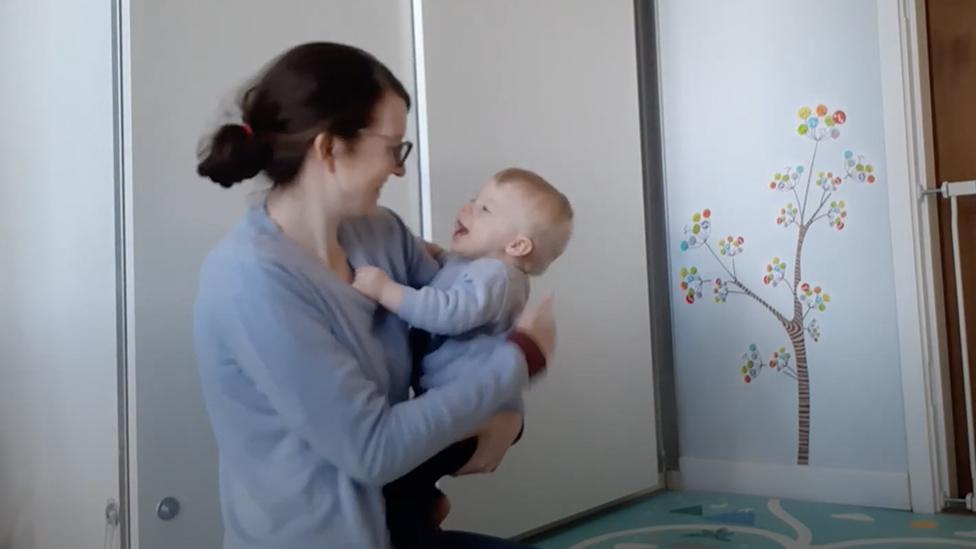Early baby therapy could reduce autism diagnoses
- Published

Parents involved in the study were taught how to respond to their baby's individual needs
Training parents how to respond to babies showing early signs of autism could reduce by two-thirds the number of three-year-olds meeting the criteria for diagnosis, a small study suggests.
Improvement on this scale has never been shown before, the UK and Australian researchers say.
The first two years are critical for brain development - but most autism diagnoses are made at the age of three.
Longer-term research on more children is needed to see if the effects last.
This study, published in JAMA Pediatrics, external, followed 103 nine- to 14-month-olds, in Melbourne and Perth, with early signs of autism.
Over five months, the parents of about half of them were taught to:
interact with their baby even if there was no eye contact
play with them in a sensitive way that helped their development
And at the age of three, while they still had developmental difficulties, their social engagement had improved, they had fewer sensory issues and repetitive behaviours and only 7% met the criteria for a diagnosis of autism.
This compared with 20% of the other children given standard care.
Prof Jonathan Green, from the University of Manchester, who designed the video-based programme used in the trial, said: "Many therapies for autism have tried previously to replace developmental differences with more 'typical' behaviours.
"In contrast, this works with each child's unique differences and creates a social environment around the child that helps them learn in a way that was best for them."
Dr James Cusack, from autism-research charity Autistica, said the study was "promising",
He said "creating an environment that works for autistic people is the best possible way to build skills" and added that people should not have to wait for a diagnosis for support to be provided.
Biggest challenges
But another charity, the National Autistic Society, said the study had a number of limitations.
"Autism is not a disease and not something that should be cured or lessened," head of policy Tim Nicholls said.
"Early intervention should be about supporting autistic people with the biggest challenges they face."
Prof Andrew Whitehouse, who was involved in the study, from the Telethon Kids Institute, at the University of Western Australia, said the results were "an important step forward", however.
"This is a genuine landmark moment for child-health research," he said.
"Our aim is to understand each child's strengths and challenges so that we can better support and nurture the unique abilities they bring to this world."